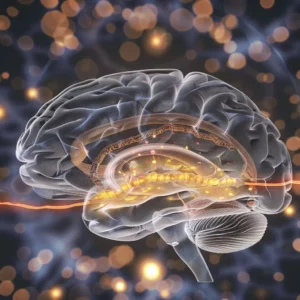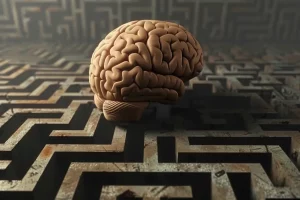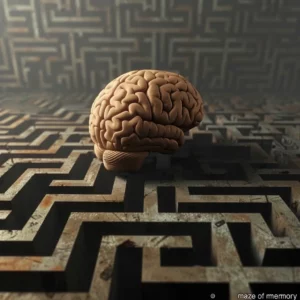Have you ever had trouble recalling an important piece of information? Perhaps you walked into a room and immediately forgot why you were there or struggled to remember a friend’s name. Memory is an essential component of our daily lives, and we rely on it to navigate our surroundings, remember important details, and learn new information. But did you know that not all memories are created equal? In this article, we will explore the differences between short-term and long-term memory, and discuss their various roles and functions in our daily lives.
What Are Short-Term and Long-Term Memories?
Short-term memory and long-term memory are two distinct types of memory that differ in their capacity, duration, and function. Short-term memory, as the name suggests, refers to our ability to remember information for a short period of time, usually less than 30 seconds. This type of memory is used to hold onto information that is immediately relevant to our current task or situation, such as a phone number we need to dial or a shopping list we need to remember. Long-term memory, on the other hand, refers to our ability to retain information for a much longer period of time, sometimes for years or even a lifetime. This type of memory is responsible for storing things like our personal experiences, academic knowledge, and general knowledge about the world around us.
Research has shown that short-term and long-term memories are processed differently in the brain. Short-term memories are stored in the prefrontal cortex, while long-term memories are stored in various regions of the brain, including the hippocampus and amygdala. Additionally, the process of consolidating short-term memories into long-term memories involves the strengthening of neural connections in the brain, a process known as synaptic plasticity. This process is thought to be influenced by factors such as repetition, emotion, and attention, which can all impact the encoding and retrieval of memories.

How Do Short-Term and Long-Term Memories Function Differently?
Short-term memory and long-term memory function differently in a number of ways. For example, short-term memory is limited in its capacity, meaning that we can only hold onto a certain amount of information at any given time. This is why we often forget things like phone numbers or names shortly after hearing them – our short-term memory simply cannot hold onto that information for very long. In contrast, long-term memory has a much greater capacity, meaning that we can store a virtually limitless amount of information over a much longer period of time.
Another key difference between short-term and long-term memory is in their mechanism of consolidation. Short-term memory does not require any specific processing or consolidation to be transferred into long-term memory. However, in order for information to be stored in long-term memory, it must first be processed and consolidated, which some experts believe happens during sleep. This means that information that is not actively processed or rehearsed is unlikely to be transferred from short-term memory to long-term memory, and can easily be forgotten.
Additionally, short-term memory is more susceptible to interference from external factors, such as distractions or competing information. This is why it can be difficult to remember a phone number or address when you are in a noisy or busy environment. Long-term memory, on the other hand, is more resistant to interference and can be retrieved even after a long period of time.
Furthermore, short-term memory is closely linked to attention and focus. If we are not paying attention to something, it is unlikely to be stored in our short-term memory. Long-term memory, however, can be formed even without our conscious awareness, through processes such as implicit learning or conditioning.

The Importance of Short-Term Memory in Daily Activities
Despite its limited capacity and short duration, short-term memory is incredibly important in our daily lives. We rely on it to process and store new information, make decisions, and perform tasks. For example, when we are having a conversation with someone, we use our short-term memory to hold onto what they are saying, so that we can respond appropriately. Similarly, when we are driving, we use our short-term memory to remember traffic rules and make quick decisions based on our surroundings. Without our short-term memory, we would struggle to perform even the most basic tasks.
The Role of Long-Term Memory in Learning and Retention
Long-term memory, meanwhile, plays a crucial role in learning and retention. When we store information in our long-term memory, we can retrieve it and use it to inform future decisions and actions. For example, if you remember that you got lost on your way to a friend’s house the last time you visited, you will be better equipped to navigate your way there the next time you go. Similarly, if you retain information from your studies, you can use that knowledge to apply to future work or academic pursuits. Long-term memory is therefore critical for our ongoing development and growth.

Factors Affecting Short-Term and Long-Term Memory Performance
There are a number of factors that can affect our short-term and long-term memory performance. One key factor is attention – if we are not paying attention to the information we are receiving, we are less likely to remember it later on. Another factor is repetition – the more we rehearse information, the more likely it is to stick in our long-term memory. Sleep is also important, as research shows that memories are consolidated during sleep. Age is another important factor, as both short-term and long-term memory decline with age.
The Connection Between Age and Memory Retention
As we age, our ability to remember information declines – but this decline is not uniform across all types of memory. Short-term memory tends to decline earlier and more rapidly than long-term memory, which is why older adults may struggle to remember information that they heard only moments ago. In contrast, long-term memory tends to fare better with age, although it can still be somewhat affected by the aging process. This is why older adults may have no trouble recalling memories from their youth, but may struggle with more recent events.
Techniques for Enhancing Both Short-Term and Long-Term Memory Performance
There are a number of techniques that can help to enhance both short-term and long-term memory performance. One approach is to use repetition – repeating information aloud, writing it down several times, or visually rehearsing it can help to improve retention. Another approach is to use mnemonic devices, such as acronyms or rhymes, to help remember information. Getting enough sleep is also crucial, as sleep helps to consolidate memories. Finally, engaging in activities like exercise, meditation, or puzzles can help to keep the brain healthy and reduce the risk of memory decline.

Differences Between Short-Term and Long-Term Memory Disorders
There are a number of disorders that can affect short-term and long-term memory in different ways. For example, Alzheimer’s disease is a type of dementia that primarily affects long-term memory, while conditions like attention deficit hyperactivity disorder (ADHD) can affect short-term memory. Other conditions that affect memory include traumatic brain injury, stroke, and alcohol and drug abuse.

Implications of Understanding Short-Term and Long-Term Memory on Cognitive Health
Understanding the differences between short-term and long-term memory is critical for maintaining cognitive health and preventing memory decline. By understanding how memory works, we can take steps to enhance our memory performance and reduce the risk of age-related memory decline. Additionally, understanding how memory is affected by different conditions can help us identify and treat memory disorders more effectively.
In conclusion, short-term and long-term memory are two distinct but interrelated types of memory that serve different functions in our daily lives. Understanding the differences between the two – including their capacity, mechanism of consolidation, and relationship to age and memory disorders – is critical for maintaining cognitive health and preventing memory decline. By using techniques like repetition, mnemonic devices, and engaging in healthy activities, we can enhance our memory performance and keep our brains sharp and healthy.



